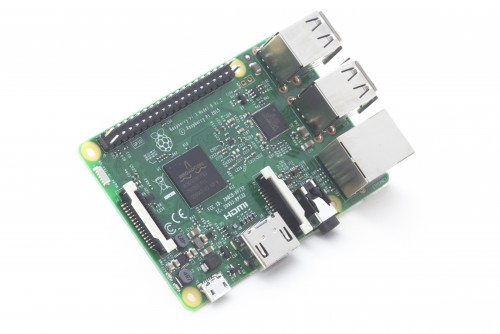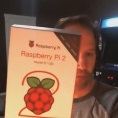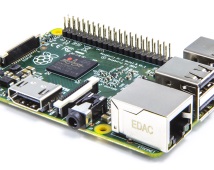
CodeNewbie Podcast
We are the most supportive community of programmers and people learning to code. Tune in every week for stories about people on their coding journey
Subscribe iTunes
Hanselminutes and CodeNewbie are teaming up to produce two episodes a
week for the month of March, featuring incredible makers in the hardware space.
There will be new content every weekday in March, so subscribe and join us daily.
Help us out by spreading the word!
Tweet #MarchIsForMakersKristen Smith has spent a lot of time creating just the right spaces for making. In her years working on spaces with Kohl’s, FabCafe, and now littleBits, she’s crafted experiences to get people excited about hardware, and using their creativity in new and innovative ways.
Mike Senese has always loved tech. He grew up around it, and his fascination and curiosity led him to not only make stuff, but share it with the world. He’s written for tech publications, like Wired and Make Magazine, and hosted a number of TV shows covering a range of science and tech topics.
This week Scott talks to to electrical engineer Laura Hughes from Arrow.com. Laura specializes in lighting and power supply design and can solve pretty much any problem with an LED. Laura schools Scott on a number of electrical issues and they come up with an epic new project idea!

Hanselman.com RSS
Here's some great tutorials for getting started with the Raspberry Pi, Node, and Visual Studio Code by compiling and running the Code editor on the Pi itself!
Simon Giertz is a Maker, a robotics enthusiast and surprisingly (her words!) a non-engineer. She's become somewhat of an expert in sh*tty robots and we love her for it. Also, she happens to be Swedish but sounds totally American just to confuse us. Scott talks about how she gets her inspiration and how she got started!

It's a LIVE Google Hangout where we unbox, set up, install and use a Raspberry Pi 3! Scott got a Raspberry Pi 3 (the new version!) in the mail today, so let's see what's involved with setting one up from scratch. Can we get from 0 to an LED flashing controlled by Python in an hour? Let's try.
Captain Brent Chapman has a BS from the West Point, an MS in Information Security from Carnegie Mellon, and has been tearing electronics apart since he was four. Today, Cpt Chapman works for the Defense Innovation Unit Experimental (DIUx) at Moffett Field and puts those skills to work. In his spare time, he tinkers, creates, and helps others do the same.
In our first episode for March Is For Makers, our month-long celebration of everything making, we dig into the differences of software and hardware, and how Emily's software background gave her an interesting perspective on her laser-cutting experience.

Hanselman.com RSS
You may have heard of Raspberry Pis and Arduinos, and perhaps considered doing a little tinkering, either with the children in your life or on your own? Where do you start? What's "Hello World" in the world of hardware? It's making an LED light up!
This week hardware engineer Andrew J. Dupree gives Scott a lesson in Electrical Engineering 101. Andrew has a Master of Science in Computer Hardware Engineering from Stanford and works at Mindtribe on cool hardware and technology strategy.
She was trained to be a web developer. But months after graduating from bootcamp, she's at Makerbot, helping build the software that their 3D printers need to do their job. It's an interesting change -- she's using python instead of ruby, and learned C++ too. We talk about what it's like to be a software developer in a world of hardware, how the two jobs compare, and what some of the challenges are.

CodeNewbie
In this blog post, we talk about two very popular tools in hardware - Arduino and Raspberry Pi. If you've ever wondered how each got started and what they do, this is the perfect blog post for you. We dive into the technical differences between a microcontroller and a microprocessor, a little bit of history for both, and show you a few beginner projects to get you started.
Today we talk to Dr. Ayanna Howard about robots. Dr. Howard has a Ph.D. in Electrical Engineering as well as an MBA from Claremont, and she teaches at the School of Electrical and Computer Engineering at the Georgia Institute of Technology. She is also the Founder and CTO of Zyrobotics, a technology startup dedicated to inclusive technology inventions. Dr. Howard also worked with NASA JPL on the Mars Rovers.

CodeNewbie
We talked to Matt Richardson of the Raspberry Pi Foundation about the future of hardware and the Maker Movement. And we wanted to chat with you about how software fits the hardware movement. Take a look at our storified chat and let us know how you feel software and hardware work together.

Our second Live Google Hangout! Scott and Saron explore 3D printing and take a look at how it works. They walk through the parts of the actual printer, do some printing, and see how it does its thing. But it's not all about the printer, there's a lot of software that's involved too. They look at how to design different objects for printing, talk about the different settings and configurations for how to print different things, and show you what online tools you can use to get started.
Matt Richardson, evangelist for the Raspberry Pi Foundation, talks to us about the little computer that's making hardware accessible to more people. We talk about what the Raspberry Pi is, discuss some beginner friendly projects, and chat about a cool bike-based hardware project he made. If you've been thinking about getting started with the Raspberry Pi, this episode is for you.

CodeNewbie
In this blog post, we walk you through how to get started with hardware. We've got a list of great inspirational talks, some tools you can check out, and some beginner-friendly projects to get you up and making.
Bertrand Le Roy has a PhD in theoretical physics and deep experience in both software and hardware development. His startup Nwazet sold hardware and software for makers. He talks to Scott about the importance of putting your DIY project in an enclosure you can count on. They also discuss 3D printing, CNC Machines, Laser Cutters, Makerspaces, and more!

CodeNewbie
This week, Julia Grace talked to us about the importance of marketing and showing off our skills. So we wanted to chat with you about how we can better promote our work, how it benefits us and others, and where we can start sharing the things we make. Take a look at our storified chat and starting showing off the awesome things you're making.

Hanselman.com RSS
I wanted to learn a little about Arduino this week. It's an huge and enthusiastic community based around an open-source electronics platform. The hardware is small and relatively inexpensive, and it brings hardware hacking to folks (like myself) that may not feel up to doing really low level electronics work. There or stackable "shields" you can plug on top and easily add new features, screens, sensors, and more.
Julia Grace talks to us about Tindie, the hardware marketplace where creators and hardware enthusiasts can come together to share their goods. We talk about the challenges of building a hardware platform, the different problems these makers are solving, and how software and hardware compare when it comes to accessibility.
Brook Drumm took a successful Kickstarter and turned it into a fantastic business making Printrbot 3D Printers. Brook is also a co-star on the new Science Channel TV show "All-American Makers."

CodeNewbie
We dedicated our weekly #CodeNewbie twitter chat to hardware and making. We had a great conversation full of projects, resources, and links to get you started in hardware. Take a look at our storified chat and hear the stories from our makers, and soon-to-makers, in the CodeNewbie community.

Our first Live Google Hangout! Scott and Saron unbox a Raspberry Pi 2 and take a look and what they can do with it! Does it all start with blinking lights? What kind of investment is needed (both parts AND money)? How is a Pi different from an Arduino?
"The Raspberry Pi is a credit-card sized computer that plugs into your TV and a keyboard. It is a capable little computer which can be used in electronics projects, and for many of the things that your desktop PC does, like spreadsheets, word-processing and games."

Hanselman.com RSS
In this blog post, Scott takes his Raspberry Pi and compiles the .NET "Mono" open source framework and runs an ASP.NET 5 Web app. Then he installs the Go Language and runs and app. Raspberry Pis are fun and versatile!
When Sara Chipps sat in the audience and watched a speaker use JavaScript to interact with a smoke detector, she was entranced. She left with a bag of LEDs, and a new love for hardware that led to her ultimately starting her hardware company Jewliebots. She talks to us about her transition from software developer to hardware CEO, the differences she's seen between building software and hardware, and what it's like to build a product for teenage girls.
The Maker Movement is in full swing. This rekindled excitement about hardware and manufacturing has us thrilled and sharing the joy of making with our family and friends. It’s the beginning of Arts and Crafts 2.0 for makers, new and old. So we are declaring this month Maker’s Month.
We’re Saron Yitbarek and Scott Hanselman, hosts of the CodeNewbie Podcast and Hanselminutes respectively. This month, we’ll produce two episodes a week on each of our podcasts. Join us on Mondays and Thursday all March long for new shows with incredible people creating amazing stuff with DIY manufacturing, and innovative hardware.
Each show includes links to projects you can explore, books you can download, products you can buy, teaching materials for the classroom, as well as lots of websites and other podcasts. We have no affiliation with any of the guests or their companies, other than we love their work and think you will too.

We are the most supportive community of programmers and people learning to code. Tune in every week for stories about people on their coding journey
Subscribe iTunes
Hanselminutes is "Fresh Air for Developers." We're a weekly NPR-style interview show with diverse technical voices and deep technical conversations.
Subscribe iTunes